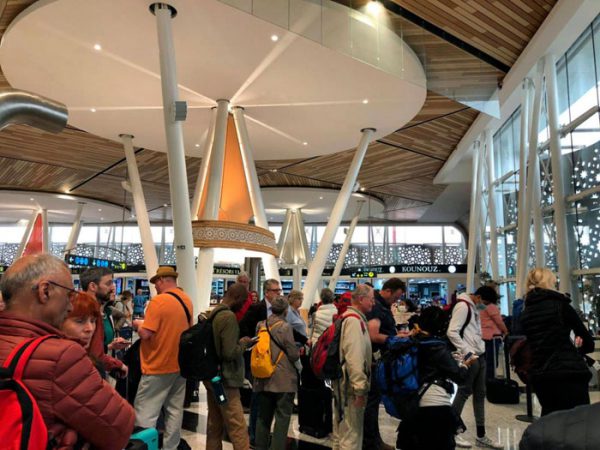SINGAPORE, 6 April 2020: Faced with lockdowns of entire nations, airports, flights and hotels, travellers find themselves in a hopeless pickle for no fault of their own.
Getting home becomes a nightmare one they hadn’t bargained for when they first embarked on their dream holiday.
Thousands of travellers are stranded, and some of the blame ends up at the doors of airlines. Understandably they had to cut services, but in many instances, the announcements came just a couple of days in advance. They didn’t give their “highly-valued customers a heads up on their intentions.

I also noticed that most airline websites are not updated in a timely fashion. Announcements are not prominently placed where travellers can see them and often even the investor relations news that should be shared with shareholders ahead of other channels rolls out days after Facebook posts.
Governments didn’t do much better. In Thailand, visas ran out, and stranded travellers faced long queues in confined office spaces that put them at risk along with the immigration officials on duty. Hardly a positive duty of care poster message?
Cambodia deserves praise for stepping up to the plate and waiving overstay penalties. It is giving stranded travellers a visa extension through to their revised departure date without too much fuss.
Then the airlines dither on refunds for cancelled flights. They hope to convince passengers to accept a credit note for future travel rather than taking up the option of a refund. Holding on to the cash is a priority when you face a financial disaster, but online travel agencies report that the refund option is definitely off the table on the advice of their partner airlines. If you bought the ticket from a traditional travel agency, then don’t even bother calling the airline for a refund. Lawyers tell travellers not to take a refund as that ends your right to demand the airline keeps its side of the bargain and flies you home.
One glaring example of how far airlines forsake good old-fashioned duty-of-care benchmarks occurs when you talk to chatbots. They seize up in seconds. AirAsia’s chatbot known as AVA alienates passengers who have a serious beef with the airline. It wastes time when the “guest” should be talking to a person who can make a meaningful decision.
Of course, airlines blame outside forces for their predicament, particularly governments that introduced travel bans without reasonable notice. Should governments fund the cost of repatriating their citizens? Ultimately if travellers are stranded much longer, and the commercial flight options disappear entirely, then governments will have no option but to fly their citizens home.
Embassies have a spotty performance record on repatriation flights. That was clearly seen when the British ambassador in Phnom Penh refused to meet a group of stranded UK travellers who visited the embassy. They were given short shrift by the guards who told them to in no uncertain terms to toddle off back down the tree-lined avenue.
The BBC estimated there could be 500,000 stranded passengers around the world struggling to find an escape route home. It’s probably a conservative estimate.
Typical stories posted on “stuck” and “stranded” Facebook pages last week chronicled failures that left travellers fending for themselves with funds and options fast running out.
Stranded travellers, who lack resources to sit out quarantine or the long wait for commercial flights to restart often fail to gain our attention. Strapped for cash, they lost their first ticket home due to cancellations, and now they face the prospect of having to buy a second one. Duty of care failed for whatever reasons. We have to admit Covid-19 caught us on the hop.
Like a house of cards, it doesn’t take much to topple the structure of the typical holiday itinerary or the core structure of the industry that sells travel experiences.
Travel and hospitality groups that just months ago were financing massive expansion are now firing staff, sending others home on furlough and claiming government bailouts to stay afloat — what a reverse in just six months for global tourism.
There are now calls for change. A former head of a travel trade association said it was time to rethink the basics “the worship of the market,” an adoration at the expense of everything else.
The challenges of climate change and the Covid-19 pandemic reminds us to pursue goals that “shun wasteful ways” and respect nature above all else. We are about to embrace a new norm whether we like it or not.
On the duty of care, the decisions we made regarding staff and customers during this ongoing crisis will be scrutinised. Travellers will ask for a reckoning once they are home. Could the path to lockdown have been navigated differently? Could there have been more clarity less flip-flop dithering and care for those travellers trapped on our shores?








Good article Don and thought provoking questions. Its a good time to press the reset button me thinks. Andrew J Wood/Bkk
Great article.
Would be nice to see an article about the Phnom Penh situations too.